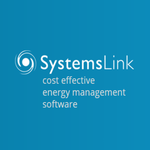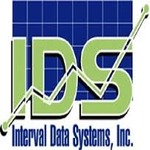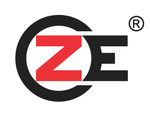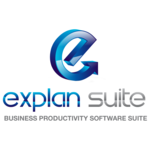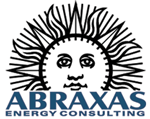List of 20 Best Energy Management Software
Energy Manager is a energy management software. With its advanced monitoring capabilities and user-friendly interface, Energy Manager streamlines energy usage and helps you cut costs. Enjoy features like bill verification and instant web access to co...Read More Energy Manager
EnergyWitness is a analytics platform by Interval Data Systems. Our platform offers advanced features to streamline building operations, ensuring cost efficiency, minimal maintenance, and optimal comfort. From initial design to ongoing operations, En...Read More EnergyWitness
EnergyCAP is solution for effectively managing energy and sustainability data. With its advanced features, it simplifies the intricate process of utility bill accounting and equips your team with timely and precise information for smarter decision-ma...Read More EnergyCAP
PV-DesignPro, the pinnacle software for creating and optimizing photovoltaic solar power systems. Designed to simplify and enhance the process, PV-DesignPro allows you to effortlessly design high-performing and budget-friendly solar solutions. Maximi...Read More PV-DesignPro
Endur is a CTRM solution designed for enterprises working with a variety of commodities. It offers advanced risk management features, automated workflows, and real-time data analysis. By seamlessly integrating processes, it enables businesses to make...Read More Endur
ZEMA Suite is a data management software catered specifically for the energy and commodity industries. It simplifies the process of gathering, integrating, and analyzing data, offering timely and valuable insights from a vast collection of over 14,00...Read More ZEMA Suite
Energy Elephant solution for simplified energy and carbon data management. Our user-friendly software streamlines the tracking and reporting process, empowering organizations to save time, reduce costs, and enhance sustainability effortlessly. Truste...Read More Energy Elephant
ETAP is a software designed to streamline complex tasks involved in electrical systems, resulting in increased efficiency for its users. Its intuitive interface and advanced features enhance design, analysis, and operation processes, making it an ess...Read More ETAP
NRG Insight is a energy management software designed to help businesses improve efficiency and reduce costs. Its real-time data analysis, customizable reporting, and seamless integration with existing systems make it effortless to achieve sustainabil...Read More NRG Insight
Elemeasure is an advanced Light Management System designed for local and remote monitoring and control of lighting systems. With its networked output and wireless sensor networks, it offers a non-intrusive way to monitor and control light modules. El...Read More Elemeasure
Stem Athena - an innovative software designed to help energy asset owners enhance performance, boost profits, and simplify clean energy management through cutting-edge AI features. Our platform empowers maximum economic and environmental benefits, al...Read More Stem Athena
EMSMON is a monitoring solution that combines a GPRS device and Cloud Software in a simple SaaS model. Keep track of your energy, renewable energy, and solar PV effortlessly with remote and local monitoring features. With EMSMON, monitoring your syst...Read More EMSMON
eTRACK - an innovative low-code BPM solution developed for the energy sector. Simplify the administration of energy efficiency and distributed generation programs with advanced features and a centralized tracking system. Enjoy increased productivity...Read More eTRACK
Lights-Out is a energy-saving solution for servers and computers. This powerful software maximizes usage while minimizing carbon footprint, making it ideal for both personal and business use. With its user-friendly management system, Lights-Out allow...Read More Lights-Out
Enexplan is a energy management software that is revolutionizing the market. Our platform offers a comprehensive solution for identifying, measuring, and implementing energy-saving strategies, bringing a new level of efficiency to building portfolio...Read More Enexplan
Metrix Utility Accounting is a software tool for ESCOs and energy managers seeking to streamline energy savings tracking and management. With its advanced features and comprehensive support, organizations can effectively boost their energy efficiency...Read More Metrix Utility Accounting
Gridium is solution for real estate professionals looking to optimize energy usage, streamline reporting, and improve efficiency without any upfront costs. With access to comprehensive data-driven insights, our software empowers your team to reduce e...Read More Gridium
eSight is a energy management software designed to help businesses monitor, analyze, and minimize their energy consumption. With its user-friendly interface and advanced analytics, eSight empowers organizations to reach their sustainability goals and...Read More eSight
AVReporter is the perfect energy management software for large enterprises. This cost-effective solution offers comprehensive data analysis, anomaly detection, and detailed reports to enhance energy efficiency. It requires minimal engineering resourc...Read More AVReporter
myQuorum is a enterprise solution that transforms efficiency in upstream and midstream operations. Its seamless integration and intuitive features streamline workflows, empower informed decision-making, and yield tangible business results for energy...Read More myQuorum
Learn More About Energy Management Software
- What Is Energy Management Software?
- What Are The Recent Trends In Energy Management Software?
- Benefits Of Using Energy Management Software
- Important Factors To Consider While Purchasing Energy Management Software?
- What Are The Key Features To Look For In Energy Management Software?
- Why Do Businesses Need Energy Management Software?
- How Much Time Is Required To Implement Energy Management Software?
- What Is The Level Of Customization Available In Energy Management Software?
- Which Industries Can Benefit The Most From Energy Management Software?
- Conclusion
What Is Energy Management Software?
An effective way for businesses and organizations to track, monitor, and analyze their energy usage is through the use of energy management software. It enables users to gather real-time data from multiple sources, including utility bills and meters, and display it in reports and dashboards that are simple to comprehend. This enables businesses to pinpoint regions with high energy usage, establish energy-saving targets, and monitor their progress toward reaching them.
The capacity of energy management software to offer comprehensive analysis and insights into energy data is one of its primary characteristics. This makes it possible for companies to spot inefficiencies, spot patterns and trends in their energy use, and decide how best to maximize their energy use. Furthermore, a variety of tools and features are available in energy management software to assist businesses in actively managing and regulating their energy use.
This can include the ability to establish alarms and notifications for anomalous patterns in energy usage, remotely control energy-consuming equipment, and automate energy monitoring. A more comprehensive approach to energy management is also made possible by the frequent integration of energy management software with other business systems, such as accounting and building management software.
Businesses can save money, increase operational effectiveness, and lessen their carbon footprint by implementing energy management software. Additionally, it assists businesses in meeting energy standards and showcasing their dedication to environmental responsibility and sustainability. When thinking about investing in energy management software, it's critical to choose a solution that can be readily integrated with your current systems and tailored to your unique requirements.
It should also be scalable as your company expands, offer strong reporting features, and have user-friendly interfaces. All things considered, companies trying to maximize their energy use and lessen their environmental effect would be wise to invest in energy management software. It is an essential tool for any business that is serious about effective and sustainable energy management because of its sophisticated features and capabilities.
What Are The Recent Trends In Energy Management Software?
The increasing need for sustainable and efficient energy practices has led to a major evolution in energy management software in recent years. The market for energy management software has been growing quickly as companies and organizations become more aware of their energy usage and how it affects the environment.
The incorporation of artificial intelligence (AI) and advanced analytics is one of the latest developments in energy management software. This makes it possible to analyze data more precisely and in real time, spot trends and abnormalities, and forecast future energy use. Businesses can use this information to optimize their energy use and make data-driven decisions that will save expenses and boost productivity.
The move to cloud-based solutions is another trend in energy management software. This makes it easier for organizations to manage their energy usage across various sites by enabling remote access and monitoring. Additionally, it makes real-time updates and warnings possible, facilitating prompt action in the event of problems or departures from typical patterns of energy use.
The development of energy management software has also been impacted by the emergence of smart meters and smart grids. These technologies make it possible to get more precise and in-depth data, giving companies a more in-depth understanding of their energy usage. This enables more precise energy usage predictions and focused energy-saving initiatives.
The market for energy management software has also been impacted by the drive for sustainability and renewable energy sources. Energy management software has been enhanced with capabilities that facilitate the integration of renewable energy as more businesses and organizations strive to lower their carbon footprint and implement sustainable practices. This includes the capacity to integrate renewable energy sources into energy management programs as well as the tracking and reporting of renewable energy usage.
Another emerging trend in energy management software is mobile compatibility. With more people using smartphones and tablets, having a mobile-friendly energy management software makes it simpler for professionals who are constantly on the go to access and analyze energy usage. Additionally, mobile apps give customers more ease and flexibility when it comes to controlling their energy use.
Benefits Of Using Energy Management Software
Businesses and organizations can efficiently monitor, track, and improve their energy consumption with the aid of energy management software. Because of its many advantages, it is an investment that businesses wishing to lower their energy expenses and environmental effect must make.
1. Greater Energy Efficiency: Businesses can learn more about their energy usage trends and pinpoint areas for improvement by utilizing energy management software. After that, this information can be utilized to make well-informed choices regarding energy use and to put waste reduction and efficiency-boosting measures into action.
2. Cost Savings: Energy management software may help organizations save a lot of money by maximizing energy use and cutting waste. It can assist in locating and getting rid of wasteful energy use, like excessive use during off-peak hours, which can reduce utility costs and improve financial performance.
3. Real-Time Monitoring And Alerts: Real-time monitoring is a crucial component of energy management software. This gives organizations a precise and current picture of their energy usage by enabling them to track it in real-time. Additionally, the program has the ability to notify users when energy usage above predetermined limits, enabling prompt action to stop excessive use.
4. Better Sustainability: Many businesses are dedicated to lowering their carbon footprint as environmental concerns continue to grow. By offering insights into energy consumption and facilitating the adoption of energy-efficient practices, energy management software can assist companies in reaching their sustainability objectives.
5. Regulatory Compliance: A lot of companies have to follow rules and guidelines about how much energy they use. Through the provision of precise data and reports for regulatory purposes, energy management software can assist businesses in maintaining compliance.
6. Customized Reporting: Businesses can create comprehensive reports on their energy use and cost savings by utilizing the customizable reporting options that energy management software provides. These reports can be used to monitor developments, spot patterns, and decide on energy management tactics with knowledge.
7. Remote Access: Energy management software is accessible from any location with an internet connection, thanks to the growing popularity of flexible and remote work schedules. This enables businesses to keep an eye on and control their energy use even when workers are not physically present at work.
Important Factors To Consider While Purchasing Energy Management Software?
To make the best choice for your company, there are a number of crucial considerations to make when thinking about investing in energy management software. To assist you in navigating the purchasing process, keep the following points in mind:
1. Features And Functionality: The software's features and functionality should be the first and most important consideration. Seek out a solution that provides real-time data tracking, extensive energy monitoring and analysis, and configurable reporting options. Additionally, it should be able to interface with other devices and systems, like building automation systems and smart meters.
2. Scalability: Your business's energy management requirements will expand along with it. Selecting software that can expand and change with your company is crucial. Seek out a system that can handle varying energy usage levels and provides customizable subscription options.
3. User-Friendly Interface: The program you select has to have an intuitive user interface that is simple to use and comprehend. Instead of adding complexity, energy management software aims to streamline and improve the efficiency of the energy management process.
4. Data Security: Energy management software handles private and sensitive data, such as cost and energy usage data. Selecting a solution with strong security features is essential to shielding your data from possible online attacks.
5. Technical Help And Customer Service: It's critical to know that you will get dependable technical help in case of problems when purchasing any product. To get your issues resolved quickly, look for a company that has a dedicated account manager and 24/7 customer service.
6. Compatibility: Verify that the software is compatible with your current devices and systems before making a purchase. This will guarantee a seamless integration process and help you steer clear of any compatibility problems.
7. Cost: Finally, take into account the software's price. Despite the temptation to choose the least expensive alternative, keep in mind that quality has a cost. Seek out a solution that strikes a balance between price and features, and take into account the possible energy savings as a return on investment.
What Are The Key Features To Look For In Energy Management Software?
For companies and organizations trying to reduce their energy use and increase sustainability, energy management software is an effective tool. Finding the ideal fit for your unique demands might be overwhelming due to the abundance of options on the market. Here are the main characteristics to search for when you start looking for energy management software:
1. Real-Time Monitoring And Reporting: The ability to track energy usage in real-time is one of the most crucial functions of energy management software. Choose a platform that provides thorough reporting and analytics so you can track trends in energy use and pinpoint areas that need work.
2. Automation And Control Capabilities: To maximize energy use, select software that provides automation and control features including remote control of energy-consuming equipment, automatic demand response, and job scheduling. You can reduce waste and energy expenses with the aid of these features.
3. Integration With Current Systems: To provide you a comprehensive picture of your energy usage and to make data gathering and analysis easier, your energy management software should be able to interface with your current building management systems, energy meters, and other devices.
4. Customization And flexibility: Choose software that can be tailored to your particular demands because every firm has different energy goals and needs. This could entail establishing goals for energy use, generating notifications for unusual energy use, and customizing dashboards and reports to meet your unique requirements.
5. Suggestions For Energy Efficiency: Seek for software that tracks your energy consumption and offers suggestions for enhancing energy efficiency. These could include making behavioral adjustments, upgrading equipment, and putting energy-saving measures into place.
6. Compatibility With Renewable Energy Sources: To precisely track your energy usage and savings, make sure the software is compatible with monitoring and managing renewable energy sources if your company uses them.
7. User-Friendly Interface: Dashboards and reports should be clear and simple to use, and the program should be straightforward to use. Users will find it simpler to comprehend and apply the facts to make wise judgments as a result. You can locate an energy management software solution that suits your particular requirements and aids in the accomplishment of your sustainability and energy efficiency objectives by taking into account these important factors. To determine which software choice is best for your company, don't forget to investigate and contrast several options.
Why Do Businesses Need Energy Management Software?
Businesses may track, evaluate, and control their energy expenses and usage with the help of energy management software. Energy management has emerged as a major concern for companies of all sizes in the current competitive and fast-paced industry. Energy management software is now a necessary investment for businesses trying to maximize their operations and stay ahead of the competition due to the need for sustainability, cost savings, and regulatory compliance.
Reducing energy expenses is one of the primary reasons companies require energy management software. Businesses may find inefficient regions and put plans in place to lower their energy consumption by monitoring and evaluating energy data in real-time. This helps to boost profitability and enhance the bottom line in addition to producing significant cost savings.
Additionally, because energy prices are always changing, companies must have a thorough awareness of how much energy they use in order to decide when to buy energy. Businesses may optimize their energy purchases and cut expenses by using energy management software, which gives them precise and comprehensive insights into their energy use trends.
Energy management software's capacity to assist companies in achieving sustainability objectives and becoming more ecologically friendly is another important advantage. Energy use from many sources, including water, natural gas, and electricity, may be tracked and monitored by the software. By doing this, companies can find ways to lower their carbon footprint and adopt sustainable practices, making the environment cleaner and greener.
Businesses also worry a lot about regulatory compliance, and energy management software can assist guarantee adherence to laws and guidelines. Businesses can stay in compliance and steer clear of expensive fines by using the program to measure and monitor energy use, carbon emissions, and other environmental issues.
Along with the aforementioned advantages, energy management software gives businesses the tools they need to efficiently control their energy use with features like automatic reporting, real-time alerts, and predictive analytics. In addition to saving time and money, this enables companies to make data-driven choices that will increase their overall energy efficiency.
How Much Time Is Required To Implement Energy Management Software?
For energy management software to be successfully integrated and used, a substantial amount of time and resources are usually needed for implementation. The precise timeline, however, may differ based on the product in question, the organization's size and complexity, and the degree of assistance offered by the software vendor. Energy management software implementation can take a few weeks to several months on average.
This covers the preliminary planning and evaluation phases, installation and setup, data integration, and staff training. To select the best software and develop a personalized implementation strategy, it is essential to have a thorough grasp of the organization's energy requirements, objectives, and existing procedures during the first assessment phase.
Installing the program on the server and personal computers, adjusting preferences, and making sure it works with other devices and systems are all part of the installation and setup process. Depending on the software's complexity and user count, this could take a few days to a few weeks. In order to offer a thorough understanding of energy usage and trends, data integration is a crucial phase in which current energy data is collected and loaded into the software.
Particularly for larger businesses with a lot of data, this can take some time. To guarantee that the software is adopted and used smoothly, employee training is an essential first step. This includes instruction on how to utilize the program, analyze data, and draw conclusions from the information presented. Depending on the software and the requirements of the company, the training's length and structure may change.
What Is The Level Of Customization Available In Energy Management Software?
The degree of customisation offered is a crucial consideration when searching for energy management software. It's critical to locate software that can be tailored to meet the distinct energy needs and workflows of various firms. While there are differences in the degree of customization across energy management software, most provide a number of options to customize the program to meet the demands of a business.
This can involve the capacity to interact with current devices and systems, as well as the creation of unique dashboards, reports, and processes. Custom warnings and notifications based on particular energy usage thresholds or anomalies can also be created using certain software. Businesses can save money and become more efficient by using this to proactively detect and remedy possible energy waste.
Additionally, sophisticated energy management software can provide the ability to design unique energy usage patterns, enabling companies to automatically modify settings, for instance, during periods of high demand. It's crucial to take into account the software provider's degree of assistance and training in addition to these customization choices.
To guarantee that companies can fully utilize the customisation possibilities, a trustworthy provider should give thorough onboarding and continuing assistance. In conclusion, take into account the degree of flexibility offered to fit your particular requirements and workflows when assessing energy management software. Increased cost savings, enhanced effectiveness, and better energy resource management all result from this.
Which Industries Can Benefit The Most From Energy Management Software?
Energy management software is a crucial tool for companies across a range of industries when it comes to cutting energy use and boosting productivity. Energy management software enables businesses to analyze, monitor, and optimize their energy use by utilizing cutting-edge technology and data analysis. This ultimately results in financial savings and environmental sustainability.
Manufacturing is among the sectors that stand to gain the most from energy management software. Because big factories and machines use a lot of energy, manufacturers can use this software to find inefficient regions and put plans in place to use less energy. This can therefore lead to a more environmentally friendly production process and significant cost savings.
Commercial real estate is another sector that can benefit from energy management software. Property managers can monitor and examine trends in energy consumption by using energy management software, which can offer insightful information about building energy usage. They can use this information to optimize building systems and make well-informed decisions on energy-saving investments, which will ultimately result in cost and energy savings.
Energy management software can be quite helpful in reducing energy expenses in the retail sector. Retailers with numerous locations and expansive shop layouts can use this software to track and control their energy consumption, pinpoint opportunities for development, and put energy-saving strategies into action. This helps the business achieve its sustainability objectives while also lowering operating expenses.
Among the sectors that stand to gain the most from energy management software are educational institutions. These institutions have complex energy needs and significant energy expenses because of their many buildings and facilities. They can save money and create a more environmentally friendly learning environment by employing energy management software to track their energy consumption in real-time, set energy-saving objectives, and put plans in place to meet them.
Health care institutions can also benefit from energy management software. Because hospitals and other healthcare facilities need a lot of energy, it's critical to track and optimize energy use. Healthcare facilities can save expenses and further their goal of providing sustainable healthcare by identifying areas for improvement and putting energy-saving measures into place with the help of energy management software.
Conclusion
In conclusion, it is evident that companies of all sizes may gain a great deal by investing in energy management software. Businesses may use this software to manage, monitor, and optimize their energy use, which lowers costs, boosts productivity, and lessens their impact on the environment. Features, usability, compatibility, and customer support are all important considerations when selecting an energy management program.
Making an informed choice can also be aided by reading reviews and carrying out in-depth research. In the end, businesses can take charge of their energy use and clear the path to a sustainable future by putting energy management software into place.

